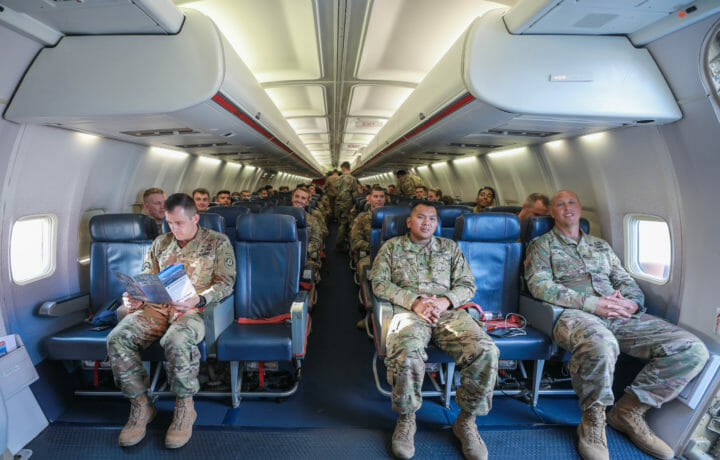Anyone who has flown across time zones, even within the United States, knows that such travel throws off the body, and this can take days or longer to fully adjust. For tourists and business travelers this can be mildly unpleasant, but for the military, it can impact the mission.
While the private sector has touted pills, diets and no shortage of travel-related advice, the military is now taking a more direct approach and is using technology to address the issue.
The Defense Advanced Research Projects Agency (DAPRA), the United States Department of Defense (DoD) agency responsible for the development of emerging technologies for use by the military, has announced this month that it is building a “travel adapter” for the human body to address jetlag as well as diarrhea.
Combating Jetlag
Jetlag is a generally harmless time change syndrome that occurs as the result of an interruption of the circadian rhythms that manage an individual’s sleep and wakefulness. Warfighters who have not slept well can have lower alertness, weaker athletic performance and greater disorientation.
Instead of the usual chemical methods that can disrupt downstream sleep patterns, which can also lead to exhaustion, DARPA has launched the ADvanced Acclimation and Protection Tool for Environmental Readiness (ADAPTER) program, which aims to develop a “travel adapter for the human body. This could be an implantable or ingestible bioelectrical carrier that can provide warfighters in the field to have control over their respective physiology.
The system was designed to entrain the sleep cycle, either to a new time zone or back to normal sleep pattern after night missions.
“The goal of the ADAPTER program is to produce the therapies within the body itself. ADAPTER will manage a warfighter’s circadian rhythm, halving the time to reestablish normal sleep after a disruption such as jet lag or shift lag,” explained Paul Sheehan, Ph.D., program manager for the DARPA ADAPTER program.
The program has been in the works for some four and a half years.
darpa takes on Diarrhea
The other issue that DARPA is attempting to address is how soldiers in the field may react to local sustenance. While warfighters can typically rely on military-supplied food, which shouldn’t cause dietary issues, it can be logistically burdensome. As a result many warfighters have to consume local food and water that could cause preventable diseases, notably diarrhea.
That may not seem like a serious problem, but it has been one that has plagued armies for eons. It has been reported that England’s King Henry V had his archers fight at the now infamous battle of Agincourt without pants or breeches as they were suffering from diarrhea. While that part didn’t make the Shakespeare play, such stomach ailments can be very serious.
DARPA noted medical data from 2003 to 2004 highlighted two-fifths of diarrhea cases among warfighters in Iraq and Afghanistan.
Sheehan suggested that ADAPTER could, “also provide safe food and water by eliminating in vivo the top five bacterial sources of traveler’s diarrhea.”
This can include species E. coli, Shigella, Salmonella, Campylobacter jejuni, and Vibrio. What is important to note, too, is that these same bacteria are the ones responsible for many child deaths worldwide.
While DARPA hasn’t disclosed exactly how the device would work, it would likely stay in the body for up to 60 days, where it could be controlled externally by the user. The internal and signaling devices would likely communicate through live tissue by radio frequencies, ultrasound or even magnetic fields. It would be secured by highly local signal propagation as well as by encryption.
It would leverage known strategies, solutions, and molecules, and will allow users to choose from one of two application tracks: (1) in vivo compound delivery to entrain circadian rhythm/restore sleep-cycles; or (2) in vivo decontamination of food and water from bacterial causes of traveler’s diarrhea.
DARPA announced that a forthcoming Broad Agency Announcement will include full program details.


